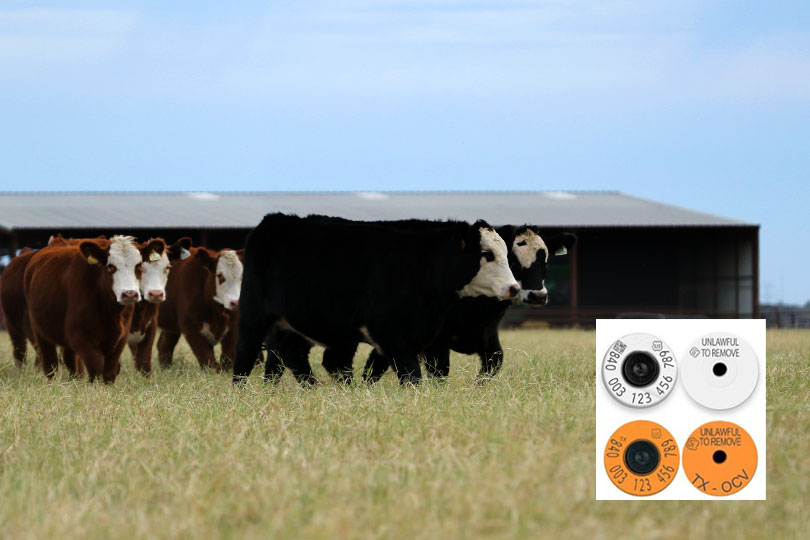By Emmy Powell
Communications Specialist
Texas Farm Bureau (TFB) submitted comments to the National Animal Disease Traceability and Veterinary Accreditation Center regarding the use of electronic identification (EID) eartags as official identification in cattle and bison.
“The health and wellbeing of the U.S. cattle herd is an industry and food security priority. Disease identification and herd protection helps build confidence in a safe, reliable and affordable food system,” Tracy Tomascik, TFB associate director of Commodity and Regulatory Activities, said in the written comments. “Texas is home to the largest cattle herd in the country, and our farm and ranch families actively work to make certain any additional regulations are beneficial and won’t negatively impact their bottom line.”
The comments were regarding the proposed amendments to animal disease traceability regulations by the U.S. Department of Agriculture’s (USDA) Animal and Plant Health Inspection Service (APHIS).
The proposed rule requires EID tags for interstate movement of certain cattle and bison to be visually and electronically readable.
The proposal would apply to specific classes of cattle crossing state lines and meet certain criteria. Those include cattle that are sexually intact and over 18 months of age, female dairy cattle of any age, male dairy animals born after March 11, 2013, cattle and bison of any age used for rodeo or recreational events, as well as shows or exhibitions.
“Texas Farm Bureau has concerns about parts of the rule and presents questions to lend clarity with regard to other sections. We hope the department can clarify these issues before moving to a final or interim final rule,” Tomascik said.
Concerns include the risks of the creation of a government-imposed mandate for electronically identifying cattle and bison.
“We believe all electronic identification of cattle and bison should be voluntary. If a mandate is necessary, the government should provide, at minimum, an eartag cost-share program with producers,” he said.
Another question addressed brands and how the rule would impact them.
“Brands continue to be used as identifications in various parts of the country,” Tomascik said. “What role do brands play in identification under this rule, and can the department clarify in more detail what is acceptable and what is not within the system? Would ranchers need to utilize an official EID in tandem with their approved ranch brand?”
Written comments from TFB emphasized the importance of data security for members, especially as it relates to information that may be collected through Freedom of Information Acts requests.
Tomascik noted TFB grassroots policy generally does not oppose USDA’s actions but requests clarity on the questions addressed in the letter.

